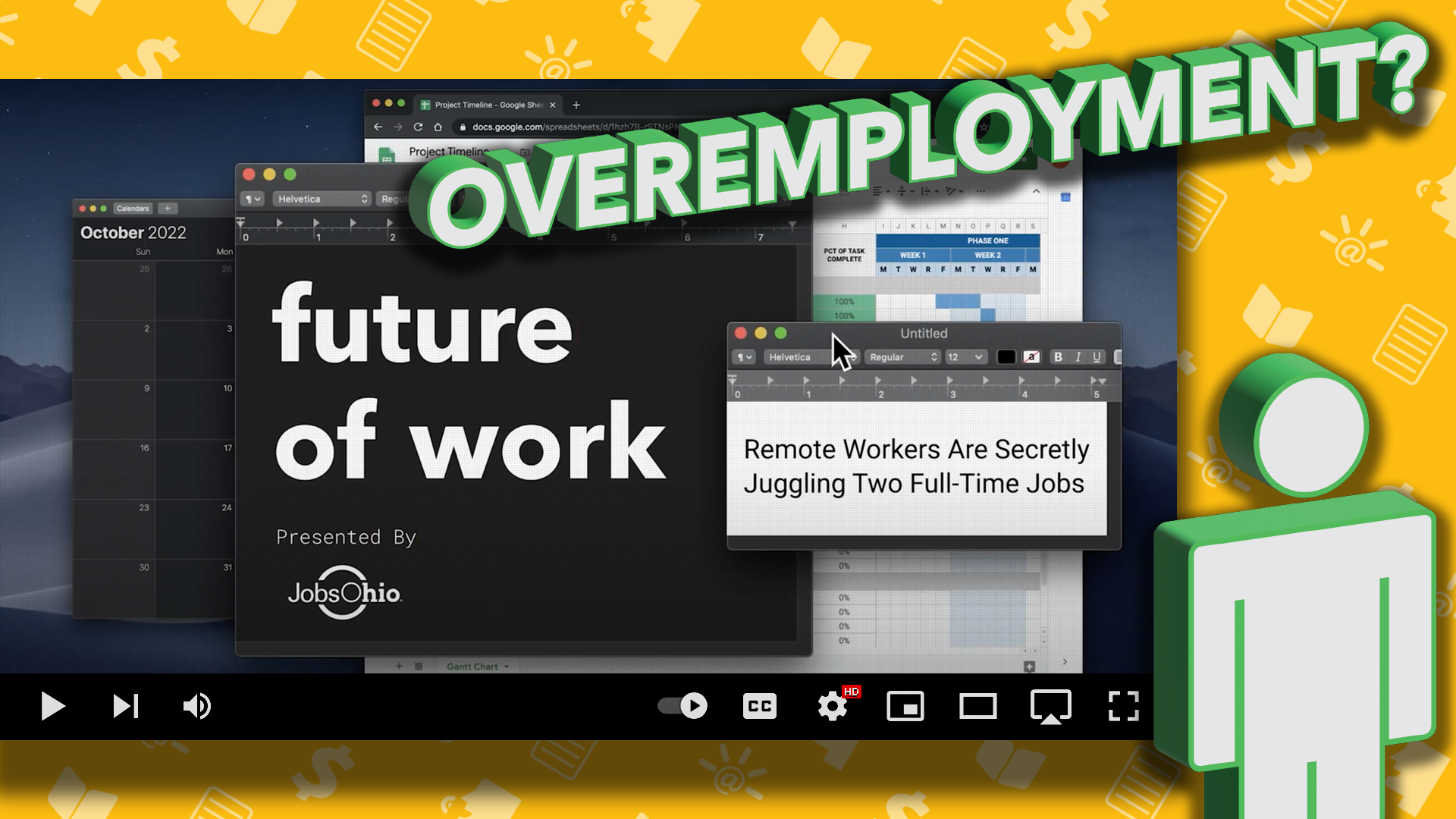
Bloomberg’s “Quicktake Originals” produced a recent video feature (see video below) on remote employees who are juggling multiple full-time jobs. The term used for this new type of worker is “overemployed.”
The idea of a person working multiple jobs (such as a part-time job in the evening or on weekends) to bring in additional income isn’t a new concept. It is something quite common in the “gig economy” as households work to pay bills, afford family vacations, and save for retirement. In addition, those of us who are self-employed are used to balancing multiple clients and projects on a weekly basis.
“Overemployment” is its own unique creature.
What’s interesting about the Bloomberg feature is that scenarios have arisen — among the 25 percent of employees operating remotely due to COVID-19 — where individuals are talking on multiple full-time jobs “concurrently” during the work week.
According to the feature, nearly 40 percent of remote workers are juggling two or more full-time jobs (sometimes in secret). This results in workers doubling or even tripling their household income.
Knowledge workers in the tech sector and finance tend to be best able to take on multiple full-time jobs, according to the report.
“People have gotten a lot more efficient working from home,” said Olivia Rockeman, a reporter with Bloomberg. “So that has reduced the working day to some degree.”
A Fast Company report suggests that one-third of tech workers admit to only working three or four hours per day.
There are websites and support groups online dedicated to helping workers balance multiple jobs.
Ethical and legal considerations are part of the equation. Workers have to be careful about the stipulations in their particular employment contract to make sure they aren’t violating company policies.
In a situation where deception is taking place, you have to consider the overall impact on a worker’s health, industry-wide changes that could come to employment contracts as a result, and potential legislation to address the issue down the road.
If this proves to be a long-term trend that gains critical mass, it will be interesting to see how “overemployment” impacts the résumé writing process — and the overall job search. It certainly creates a unique set of challenges for career services professionals. Which job do we include on the résumé? On the LinkedIn profile?
In a world where remote and hybrid work schedules have started to become more mainstream, these sorts of issues are going to pop up.
As career services professionals, we need to keep a watchful eye on these developments and be prepared to give our clients sage advice on navigating new ways of working.
